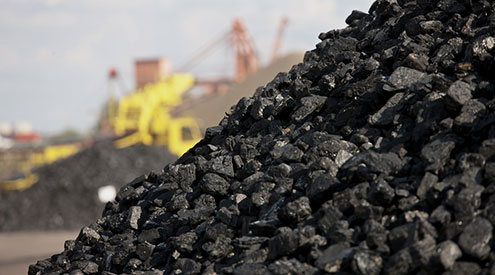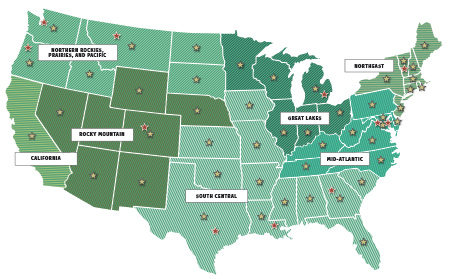The United States is currently reliant upon fossil fuels to meet our growing energy needs. We use coal for more than half of our electricity needs. Additionally, America's transportation system is overwhelmingly dependent on conventional petroleum oil, which is not only responsible for 20 percent of our climate change pollution, but also threatens our national security and our economic prosperity. We spend $1 billion every day on foreign oil.
 The production and use of fossil fuels—also known as "dirty fuels"—for electricity and transportation fuels are not only contributing to climate change, but they also cause health problems, destroy our wild places, and release toxins such as mercury and arsenic into our communities.
The production and use of fossil fuels—also known as "dirty fuels"—for electricity and transportation fuels are not only contributing to climate change, but they also cause health problems, destroy our wild places, and release toxins such as mercury and arsenic into our communities.
Developing clean and renewable energy and innovative technology can help solve this problem. The National Wildlife Federation fights to protect people and wildlife from harmful fossil fuels through legislation and advocates for the development of clean energy.
Coal is America's most abundant source of climate change pollution—and we have a lot of it in the United States. We currently use coal for over half of our growing electricity demand, but this comes at a great cost to our environment and our health.
Even worse, as conventional petroleum oil becomes scarcer and more expensive, industry and governments around the world are pushing to develop even dirtier fuels to power our transportation sector: tar sands, oil shale, and coal to liquids.
Each of these unconventional dirty fuels emits high levels of climate change pollution and comes with a unique set of risks to human health, our landscapes, and our water resources. The National Wildlife Federation is working to stop a new generation of these super-polluting fuels before they become the new face of America's energy and further push the world's climate over the tipping point.
About 75 percent of the oil shale and tar sands in the Green River Basin are located in lands managed by the federal Bureau of Land Management, a division within the Department of the Interior. Due to the efforts of the National Wildlife Federation and others, the Bureau significantly reduced the public lands that it would make available for oil shale and tar sands extraction, cutting the number of acres by two-thirds to conserve other important resources in the area, including wildlife and water.
Still 700,000 acres of public land in Colorado, Utah, and Wyoming remain available, first for research and development of extraction technologies and then commercial production of oil shale. Approximately 130,000 acres are open for production of tar sands. U.S. tar sands have a different composition than those in Canada and are not yet commercially viable. However, several companies are attempting to do so right now on private and state lands in Utah.
Each year, the U.S. provides billions of dollars in subsidies to companies in the fossil fuel sector. This taxpayer money could be better spent investing in renewable energy, like offshore wind and solar, and energy efficiency which will decrease our dependence on fossil fuels, reduce hazardous pollution, and help spur new jobs in the clean energy sector.
Take the Clean Earth Challenge and help make the planet a happier, healthier place.
Learn MoreA groundbreaking bipartisan bill aims to address the looming wildlife crisis before it's too late, while creating sorely needed jobs.
Read MoreMore than one-third of U.S. fish and wildlife species are at risk of extinction in the coming decades. We're on the ground in seven regions across the country, collaborating with 52 state and territory affiliates to reverse the crisis and ensure wildlife thrive.
